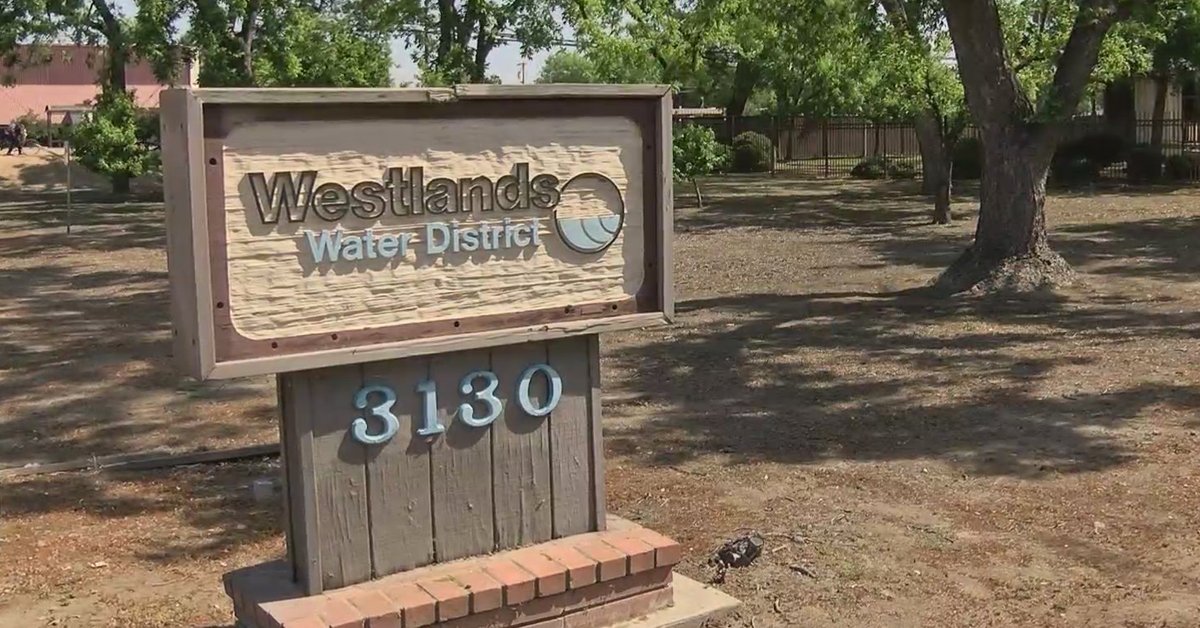South-of-Delta agricultural contractors are receiving a 10 percent bump to their contracted water supplies.
The Bureau of Reclamation announced the boost on Tuesday, which came as welcome news to Valley farmers, although it’s ultimately seen as still not nearly enough.
The big picture: Federal authorities are increasing water supplies for south-of-Delta agricultural contractors from 40 percent to 50 percent.
- “With the current and forecasted conditions that factor into Central Valley Project allocations, in particular, a greater than expected rate of exports during the month of June, we are pleased to be able to provide an additional increase to south-of-Delta agricultural contractors,” said California-Great Basin Regional Director Karl Stock.
Flashback: Last year agricultural contractors received 100 percent of their water supplies after a historic water season, the first time that happened in 17 years.
Water districts ask for more: Westlands Water District said the allocation increase is welcomed and clearly justified but long overdue.
- The district called for the underlying regulatory decisions that led to the low allocations to be remedied.
- “This announcement provides much-needed- relief and is good news for our growers. Even so, the low water supply allocations announced earlier in this contract year, after a relatively wet winter that filled the reservoirs and lifted the state officially out of drought conditions, single-handedly demonstrate the critical and urgent need to improve water management transparency and accountability in the state of California,” said Allison Febbo, General Manager, Westlands Water District.
- “We need a more collaborative and transparent approach to regulatory decisions that affect our water supply, and we urge the five agencies responsible for making these decisions to rely more effectively on sound data and information,” she continued. “Every drop of CVP water allocation given to Westlands Water District growers is food grown, jobs produced, and groundwater saved.”
- Westlands pointed to the 390,000 acre-feet of water that its farmers have banked in groundwater recharge, but that the water is meant to be used during future extreme dry years, not a year like the current one.
- Federico Barajas, the Executive Director of the San Luis and Delta-Mendota Water Authority, echoed the comments from Westlands.
- “This year is a perfect example of the disconnect between available rainfall and snowpack and the ability to operate the Central Valley Project in a way that takes advantage of the water provided by nature in any given year,” Barajas said. “For critical periods this year, exports were reduced due to inflexible operational criteria that failed to fully account for conditions for steelhead and salmonid species, resulting in reduced surface water supply for Water Authority members. These reduced surface water deliveries result in one or both of two outcomes – reduced economic productivity or more groundwater extraction – both of which make limited sense when hydrology indicates that additional surface water deliveries should be possible.”
- Barajas said there needs to be a better balance in scientifically supported decision-making to adaptively manage California’s water system.
- “Now is the time to improve project operations, and we are committed to successfully developing flexible project operation criteria that protect species and do not unnecessarily restrict surface water supplies,” Barajas said.
Valadao responds: Rep. David Valadao (R–Hanford) praised the increase but also urged the Bureau of Reclamation to change.
- “While I am grateful for this welcomed increase from Reclamation, it’s frustrating that we could have had this allocation back in February to give farmers proper time to plan their operations for the year,” Valadao said. “Reclamation must improve the pace and transparency of their decision-making process moving forward to ensure our farmers are not being held in the dark or gambling about the future of their water supply. I will continue urging transparency in Reclamation’s decision-making and a significant increase in water allocations for South-of-Delta agriculture.”










